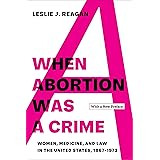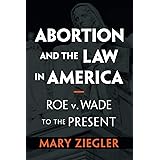
Enjoy fast, free delivery, exclusive deals, and award-winning movies & TV shows with Prime
Try Prime
and start saving today with fast, free delivery
Amazon Prime includes:
Fast, FREE Delivery is available to Prime members. To join, select "Try Amazon Prime and start saving today with Fast, FREE Delivery" below the Add to Cart button.
Amazon Prime members enjoy:- Cardmembers earn 5% Back at Amazon.com with a Prime Credit Card.
- Unlimited Free Two-Day Delivery
- Streaming of thousands of movies and TV shows with limited ads on Prime Video.
- A Kindle book to borrow for free each month - with no due dates
- Listen to over 2 million songs and hundreds of playlists
- Unlimited photo storage with anywhere access
Important: Your credit card will NOT be charged when you start your free trial or if you cancel during the trial period. If you're happy with Amazon Prime, do nothing. At the end of the free trial, your membership will automatically upgrade to a monthly membership.

Download the free Kindle app and start reading Kindle books instantly on your smartphone, tablet, or computer - no Kindle device required.
Read instantly on your browser with Kindle for Web.
Using your mobile phone camera - scan the code below and download the Kindle app.

OK
Abortion in America: The Origins and Evolution of National Policy (Galaxy Books)
Purchase options and add-ons
- ISBN-100195026160
- ISBN-13978-0195026160
- PublisherOxford University Press
- Publication dateSeptember 20, 1979
- LanguageEnglish
- Dimensions8.5 x 5.44 x 0.81 inches
- Print length331 pages
"Layla" by Colleen Hoover for $7.19
From #1 New York Times bestselling author Colleen Hoover comes a novel that explores life after tragedy and the enduring spirit of love. | Learn more
Frequently bought together

Customers who viewed this item also viewed
Editorial Reviews
Review
From the Back Cover
About the Author
Product details
- Publisher : Oxford University Press (September 20, 1979)
- Language : English
- Paperback : 331 pages
- ISBN-10 : 0195026160
- ISBN-13 : 978-0195026160
- Lexile measure : 1760L
- Item Weight : 1 pounds
- Dimensions : 8.5 x 5.44 x 0.81 inches
- Best Sellers Rank: #466,411 in Books (See Top 100 in Books)
- #76 in Abortion & Birth Control
- #322 in Government Social Policy
- #1,516 in Literary Criticism & Theory
- Customer Reviews:
About the author

Discover more of the author’s books, see similar authors, read author blogs and more
Customer reviews
Customer Reviews, including Product Star Ratings help customers to learn more about the product and decide whether it is the right product for them.
To calculate the overall star rating and percentage breakdown by star, we don’t use a simple average. Instead, our system considers things like how recent a review is and if the reviewer bought the item on Amazon. It also analyzed reviews to verify trustworthiness.
Learn more how customers reviews work on Amazon-
Top reviews
Top reviews from the United States
There was a problem filtering reviews right now. Please try again later.
The drive to make abortion illegal from the moment of conception came from the new, scientific regular physicians and the AMA, who launched a moral crusade after the Civil War against the common and widely tolerated method of family planning. Religious leaders failed to back them up because the crusade was so unpopular.
There was a strong bigoted motive too. Protestant physicians were worried that the falling birth rates for white Protestant Americans meant that the country would be overwhelmed with immigrant Catholics, who did not allow abortion and had larger families.
We can only be amazed at the blindness of the legal scholars working in Justice Alito’s office, cherry-picking bizarre precedent from 17th century, while ignoring a mountain of contrary precedent clearly presented in this book.
Author Mohr imagined that Roe would settle the issue because it swung America back toward our original tolerant approach. This book should have been required reading for all the justices. However it is human nature to ignore things you don’t want to hear.
That isn't saying much. Books on the history of abortion in the U.S. are abysmal.
I read it in two days, which is a first in awhile. An excellent history book took me a month. The book is readable, and it keeps you reading. There were large parts of the latter chapters that one doesn't need in that sort of detail, unless you're a law student, and I skipped over a lot. This book would be an excellent resource for a law student writing a law review article on the subject.
The book clearly and in considerable detail explains the early history of abortion in this country up to 1900. After that it rather falls apart and gets bogged in detail. Fortunately the history of abortion before 1900 is what is least well understood in this country, and what I wanted to learn about.
There are annoying shortcomings where the author fails. The author is a good historian but has zero grasp of structural problems in society as a driving force of social change. One key question I wanted answered was if, how and/or why did physicians drive anti-abortion legislation in the 19th century. Mohr shows us in some detail that they did, but, something that strange requires the WHY part to be convincing. He falls part on the why. He argues that historians simply don't understand why physicians did that. It gets stranger when he informs us that FEMINISTS also lobbied for legislation against abortion, specifically to save the anglo-Saxon race, and again it isn't convincing.
Thirty years ago, I took a course in the history of women at university, that focused on how middle and upperclass women negotiated responses to oppressive 19th century social changes in ways that met immediate goals but backed them into corners. Some review and research soon revealed why physicians, mostly Anglo-Saxon and well educated, and middle class feminists, lobbied against abortion, which society had freely allowed until mid pregnancy and few in this country questioned. The development of Capitalism and then of a middle class, separated work from the home, and isolated middle class women at home with little to do beyond housework, which didn't much occupy prosperous women even then. This stripped them of their economic involvement in the household living and its attendant respect, self esteem, and public involvement outside of the home. To preserve some status, respect and self esteem middle class women themselves helped develop the "Cult of womanhood". Victorian middle class male dominated institutions happily adopted the Cult of womanhood. In the minds of upper middle class, almost entirely Anglo-Saxon physicians, abortion violated it. So it was unnatural. This was added to the observation heatedly objected to by both physicians and suffragettes, that immigrants, especially Catholics, were in danger of taking over the country that rightly belonged to Anglo-Saxons because they wouldn't have abortions and had high birth rates, while middle class birth rates had fallen through the floor, for reasons poorly understood but blamed on abortion. And, doctors wanted other health practitioners driven from practice, which of course would not have led them to lobby for flat out bans on abortion if that alone had been their motive. As Mohr tells us, public attitudes toward abortion changed only after laws were passed making it a felony, and probably also because of the development of effective methods of contraception. Suffragettes were middle class women, and they did not wish to challenge anything that maintained a woman's confinement to home and role as a homemaker; that was the highest status role available to any woman. The only social problems that bothered them, like marital rape, on which they blamed middle class abortions, they believed would be magically solved by giving women the vote. It was the continued loss of any vital role or social involvement of middle class women in the mid 20th century, coupled with the fact that noone else's lives resembled that of the Cult of the Woman, that finally led to modern feminism a hundred years later.
Mohr questions why doctors of the 1960s suddenly favored loosening laws on abortion, a question he cannot answer. He does not grasp that of course, society changed. He never goes into the modern anti-abortion movement at all. Finally, he predicts the future. It is clear that abortion policy in the United States will now be decided at the federal level!
In short, Mohr writes an excellent history with the details all there, except, withotu understanding and being able to clearly explain the structural changes in the economy and the status of women that drove the doctors' and suffragettes' otherwise inexplicable behavior, the book just fails to be convincing, and like another well recommended history of abortion I recently read and reviewed, it leaves one convinced that must have been some preexisting deep underlying sentiment against abortion.
As a matter of fact there was not some preexisting deep underlying sentiment against abortion; it was accepted and widely practiced through most of the 19th century. As another history which is even less convincing tells us, even Roman Catholicism did not condemn abortion before "quickening" until a recent point in time.











